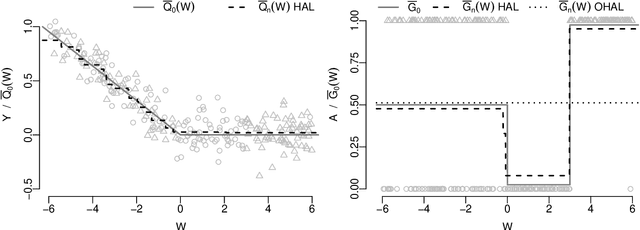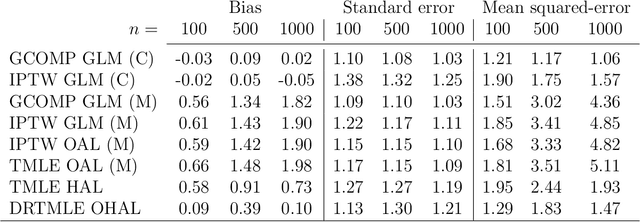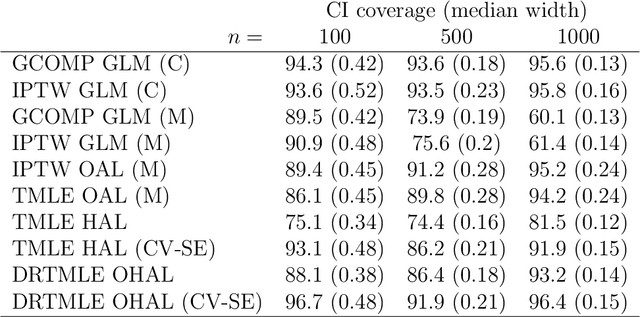Flexible Collaborative Estimation of the Average Causal Effect of a Treatment using the Outcome-Highly-Adaptive Lasso
Paper and Code
Jun 20, 2018


Many estimators of the average causal effect of an intervention require estimation of the propensity score, the outcome regression, or both. For these estimators, we must carefully con- sider how to estimate the relevant regressions. It is often beneficial to utilize flexible techniques such as semiparametric regression or machine learning. However, optimal estimation of the regression function does not necessarily lead to optimal estimation of the average causal effect. Therefore, it is important to consider criteria for evaluating regression estimators and selecting hyper-parameters. A recent proposal addressed these issues via the outcome-adaptive lasso, a penalized regression technique for estimating the propensity score. We build on this proposal and offer a method that is simultaneously more flexible and more efficient than the previous pro- posal. We propose the outcome-highly-adaptive LASSO, a semi-parametric regression estimator designed to down-weight regions of the confounder space that do not contribute variation to the outcome regression. We show that tuning this method using collaborative targeted learning leads to superior finite-sample performance relative to competing estimators.
 Add to Chrome
Add to Chrome Add to Firefox
Add to Firefox Add to Edge
Add to Edge